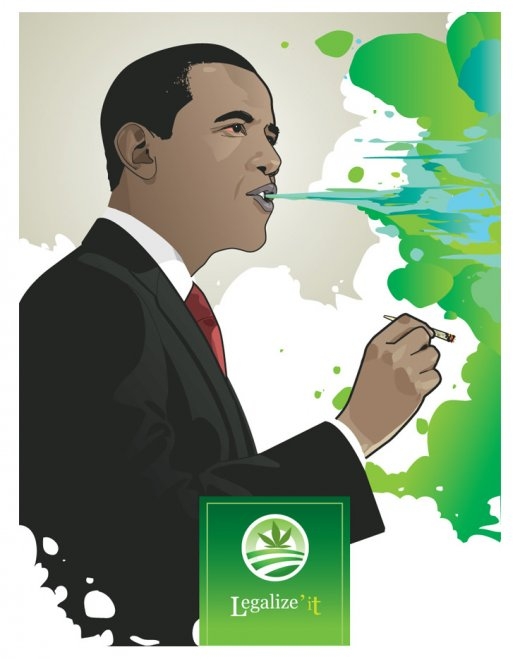
JOHN STOSSEL: Two years ago, in Prince George’s County, Md., cops raided Cheye Calvo’s home — all because a box of marijuana was randomly shipped to his wife as part of a smuggling operation. Only later did the police learn that Calvo was innocent — and the mayor of that town. “When this first happened, I assumed it was just a terrible, terrible mistake,” Calvo said. “But the more I looked into it, the more I realized (it was) business as usual that brought the police through our front door. This is just what they do. We just don’t hear about it. The only reason people heard about my story is that I happened to be a clean-cut white mayor.” Radley Balko of Reason magazine says more than a hundred police SWAT raids are conducted every day. Does the use of illicit drugs really justify the militarization of the police, the violent disregard for our civil liberties and the overpopulation of our prisons? It seems hard to believe. I understand that people on drugs can do terrible harm — wreck lives and hurt people. But that’s true for alcohol, too. But alcohol prohibition didn’t work. It created Al Capone and organized crime. Now drug prohibition funds nasty Mexican gangs and the Taliban. Is it worth it? I don’t think so.
It’s been 40 years since Richard Nixon declared war on drugs. Since then, government has spent billions and officials keep announcing their “successes.” They are always holding press conferences showing off big drug busts. So it’s not like authorities aren’t trying. We’ve locked up 2.3 million people, a higher percentage than any other country. That allows China to criticize America’s human-rights record because our prisons are “packed with inmates.”  Yet drugs are still everywhere. The war on drugs wrecks far more lives than drugs do! Need more proof? Fox News runs stories about Mexican cocaine cartels and marijuana gangs that smuggle drugs into Arizona. Few stop to think that legalization would end the violence. There are no Corona beer smugglers. Beer sellers don’t smuggle. They simply ship their product. Drug laws cause drug crime. MORE
Yet drugs are still everywhere. The war on drugs wrecks far more lives than drugs do! Need more proof? Fox News runs stories about Mexican cocaine cartels and marijuana gangs that smuggle drugs into Arizona. Few stop to think that legalization would end the violence. There are no Corona beer smugglers. Beer sellers don’t smuggle. They simply ship their product. Drug laws cause drug crime. MORE
ALTERNET: These days, it seems like everyone is talking in earnest about marijuana legalization, once dismissed as little more than a Cheech and Chong pipe dream. Indeed, a new poll reveals that 53 percent of Americans now support ending marijuana prohibition. Bolstered by increasing public support for something once considered to be a political third rail, lawmakers from Rhode Island to Washington State have put the issue on the table for consideration. And citizen initiatives (particularly in California) are cropping up faster than ditch weed. These are welcome developments to a retired police chief like me who oversaw the arrests of countless people for marijuana and other drugs, but saw no positive impact from all the blood, sweat and tears (and money) put into the effort. Soon, it seems, cops may no longer have to waste time and risk lives enforcing pot laws that don’t actually prevent anyone from using marijuana. Yet, I’m alarmed that the above-mentioned poll showing majority support for marijuana legalization also found that fewer than one in 10 people agree that it’s time to end the prohibition of other drugs. This no doubt makes sense to some readers at first glance, since more people are familiar with marijuana than other drugs like cocaine, heroin or meth. However, even a cursory study of our drug war policies will reveal that legalizing pot but not other drugs will leave huge social harms unresolved. MORE
 RELATED: New Jersey’s brand new medical marijuana law will likely have to wait an extra 90 days before patients can start lighting up legally. After the Administration of Governor Chris Christie said it needed more time to draft the rules and regulations that will governor the state’s Alternative Treatment Centers(ATC), a key sponsor of the law has filed legislation to delay it from taking effect by three more months. Assemblyman Reed Gusciora(D-Mercer) agreed to the delay after talks with officials at the Department of Health and Senior Services. However, the 90 day extension in his amendment to the law is only a fraction of the six months to year delay asked for by Governor Christie. MORE
RELATED: New Jersey’s brand new medical marijuana law will likely have to wait an extra 90 days before patients can start lighting up legally. After the Administration of Governor Chris Christie said it needed more time to draft the rules and regulations that will governor the state’s Alternative Treatment Centers(ATC), a key sponsor of the law has filed legislation to delay it from taking effect by three more months. Assemblyman Reed Gusciora(D-Mercer) agreed to the delay after talks with officials at the Department of Health and Senior Services. However, the 90 day extension in his amendment to the law is only a fraction of the six months to year delay asked for by Governor Christie. MORE
RELATED: “We don’t think there’s any need for a delay,” said Ken Wolski, the executive director of the Trenton-based Coalition for Medical Marijuana-New Jersey Inc. “Our organization has actually developed regulations that we would be happy to give the Department of Health. We could roll it out July 1.” MORE
 RELATED: New Jersey Governor Chris Christie is seeking, and legislation has been introduced, to delay implementation of New Jersey’s long-awaited medical cannabis law by at least 90 days. Gov. Christie has also called on legislators to amend the law — which, as written, is already the most restrictive in the nation — so that patients would only be eligible to obtain medical cannabis in state hospitals. The Governor has also proposed limiting the cultivation of marijuana so that it could only legally be grown at Rutgers University. NORML opposes these amendments, which if enacted, would make New Jersey’s law totally unworkable for patients. How so? Consider this: For over nine years the University of Massachusetts has sought — unsuccessfully — to cultivate marijuana for medical research purposes. The University even went so far as to file a legal challenge with the DEA — which it won — to gain permission to grow pot. Yet in 2009 the DEA’s acting director overruled the determination of the agency’s own administrative law judge in order to prohibit UMass from growing even a single marijuana plant. It is unlikely that a similar plan at Rutgers University would be met with any greater success. MORE
RELATED: New Jersey Governor Chris Christie is seeking, and legislation has been introduced, to delay implementation of New Jersey’s long-awaited medical cannabis law by at least 90 days. Gov. Christie has also called on legislators to amend the law — which, as written, is already the most restrictive in the nation — so that patients would only be eligible to obtain medical cannabis in state hospitals. The Governor has also proposed limiting the cultivation of marijuana so that it could only legally be grown at Rutgers University. NORML opposes these amendments, which if enacted, would make New Jersey’s law totally unworkable for patients. How so? Consider this: For over nine years the University of Massachusetts has sought — unsuccessfully — to cultivate marijuana for medical research purposes. The University even went so far as to file a legal challenge with the DEA — which it won — to gain permission to grow pot. Yet in 2009 the DEA’s acting director overruled the determination of the agency’s own administrative law judge in order to prohibit UMass from growing even a single marijuana plant. It is unlikely that a similar plan at Rutgers University would be met with any greater success. MORE
 RELATED: In fact, one proposal floated last week to have the marijuana grown on Rutgers University farmland(or greenhouse) is not in the amendment that was filed by Assemblyman Gusciora. That keeps, for now, the original language of the law that calls for each ATC to grow its own marijuana. MORE
RELATED: In fact, one proposal floated last week to have the marijuana grown on Rutgers University farmland(or greenhouse) is not in the amendment that was filed by Assemblyman Gusciora. That keeps, for now, the original language of the law that calls for each ATC to grow its own marijuana. MORE
TIME: This is what a medical-marijuana class looks like. Twenty-five or so students — men, women, young, middle-aged — listen attentively as an instructor holds up a leafy green plant and runs down the list of nutrients it needs. Nitrogen: stimulates leaf and stem growth. Magnesium: helps leaf structure. Phosphorous: aids in the germination of seeds. Michigan’s Med Grow Cannabis College is one of several unaccredited schools to have sprung up in the 14 states and the District of Columbia that have legalized medical use of marijuana. Many of its students suffer from chronic pain. Others are looking to supply those in need of relief. The Med Grow campus sits across the street from a KFC in Southfield, a relatively prosperous suburb of Detroit. Nearly one-fifth of its 90 or so students are former auto-industry workers. These recent enrollees — and the more than 1,000 people who have completed courses at Med Grow since it opened in September — are betting that studying such topics as bloom cycles and advanced pruning techniques will help them succeed in what may be one of the few growth industries in Michigan, home of the nation’s highest unemployment rate: 14%. With medical marijuana fetching as much as $500 for 1 oz. (28 g), providing it to a mere five patients could generate $10,000 a month in sales. MORE
 STAR-LEDGER: Why pass a law legalizing medicinal marijuana, then set up roadblocks for patients who need it? That’s a question New Jersey must face because, in some ways, our law — which goes into effect next month — is more restrictive than New Mexico’s. Some provisions can be addressed by those administering the New Jersey law, but legislators will have to amend the law to fix other problems. For instance, New Jersey’s law calls for at least six dispensaries. Six won’t be enough, so the Department of Health and Senior Services, charged with monitoring access, should allow for more. That’s an easy fix: Grant more licenses, open more dispensaries. Other obstacles to access must be remedied by law. New Jersey patients can designate only one caretaker to pick up the marijuana — a restriction that doesn’t apply to other prescriptions and shouldn’t apply to this one. The law should be tweaked to allow dispensaries to deliver, too, just like the local pharmacy. In the end, the easiest way to assure access is to allow patients to grow their own — not in unlimited quantities, but enough to meet their needs. Our law doesn’t allow it, but it should. MORE
STAR-LEDGER: Why pass a law legalizing medicinal marijuana, then set up roadblocks for patients who need it? That’s a question New Jersey must face because, in some ways, our law — which goes into effect next month — is more restrictive than New Mexico’s. Some provisions can be addressed by those administering the New Jersey law, but legislators will have to amend the law to fix other problems. For instance, New Jersey’s law calls for at least six dispensaries. Six won’t be enough, so the Department of Health and Senior Services, charged with monitoring access, should allow for more. That’s an easy fix: Grant more licenses, open more dispensaries. Other obstacles to access must be remedied by law. New Jersey patients can designate only one caretaker to pick up the marijuana — a restriction that doesn’t apply to other prescriptions and shouldn’t apply to this one. The law should be tweaked to allow dispensaries to deliver, too, just like the local pharmacy. In the end, the easiest way to assure access is to allow patients to grow their own — not in unlimited quantities, but enough to meet their needs. Our law doesn’t allow it, but it should. MORE
